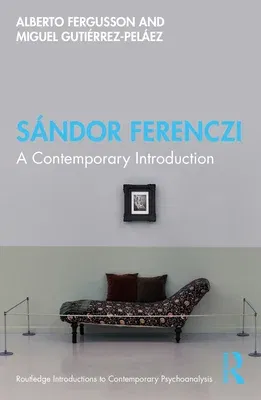Alberto Fergusson
(Author)Sándor Ferenczi: A Contemporary IntroductionPaperback, 11 February 2022

Qty
1
Turbo
Ships in 2 - 3 days
Only 2 left
Free Delivery
Cash on Delivery
15 Days
Free Returns
Secure Checkout

Part of Series
Routledge Introductions to Contemporary Psychoanalysis
Print Length
138 pages
Language
English
Publisher
Routledge
Date Published
11 Feb 2022
ISBN-10
0367426765
ISBN-13
9780367426767
Description
Product Details
Book Format:
Paperback
Country of Origin:
US
Date Published:
11 February 2022
Dimensions:
19.84 x
12.85 x
0.76 cm
ISBN-10:
0367426765
ISBN-13:
9780367426767
Language:
English
Location:
Oxford
Pages:
138
Publisher:
Weight:
140.61 gm